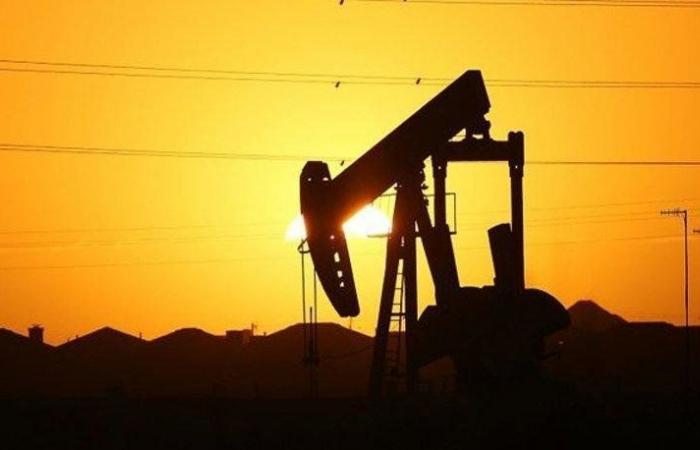JavaScript is disabled! Why you want to do so? Please enable JavaScript in your web browser!
As soon as the death of Hassan Nasrallah, secretary general of Hezbollah, was announced, the market immediately reacted upwards, reflecting investors’ concern. However, this response remained moderate, with an increase of only 0,5 $ per barrel. This is explained by the timing from the announcement, made on the evening of September 27, to the closure of the main world markets, which did not allow transactions to fully take into account the fears of economic players.
After a weekend of relative stability, the market closed Monday at 71,7 $ the barrel, valuing the impact of the death of Hassan Nasrallah at a total increase of 0,7 $ per barrel.
With the rapid escalation of tensions following this event, the Iranian response occurred. The Iranian Revolutionary Guard fired more than 200 missiles, the fate of which was the subject of conflicting information. We therefore do not know whether these missiles hit strategic targets or not.
In response, several Israeli officials promised a retaliation, this time threatening to target Iranian oil installations. These statements shook markets to their core, causing prices to rapidly rise to uncomfortable levels.Brent price shows biggest weekly rise in two years
On Thursday, October 3, the market closed at 77,9 $ per barrel, marking an increase of 4,3% compared to the previous session. This is the largest daily increase observed since October 2023.
Over a one-week period, Brent recorded a significant increase of 8,9%, passing from 71,5 $ has 77,9 $, what constitutes the strongest weekly increase in two years. This increase is mainly due to the statements of US President Joe Biden, who expressed that the United States was discussing the possibility of supporting possible Israeli strikes against Iranian oil infrastructure.
These comments fueled strong nervousness among investors, provoking an immediate and tangible reaction on the oil markets. This Friday, October 4, the price of Brent reached its level the highest since the end of Augustexceeding the 78 $ the barrel.
In the event of a response from Israel,What do market analysts think?
The Middle East, a crucial region for global energy supplies, represents approximately a third of global oil production. Among the ten largest oil exporters, six are located in the region: Saudi Arabia, Iraq, the United Arab Emirates, Kuwait, Iran and Qatar.
Iran produces approximately 3.3 million barrels per day in recent months, placing it third among producers in the Organization of the Petroleum Exporting Countries (OPEC). A direct attack on its oil infrastructure would cause significant supply disruption, with major repercussions on markets.
Market analysts agree on the potential impact of such a conflict. Vishnu Varathan, head of economic strategy for Asia at Mizuho Bank, emphasizes, in an interview with Bloomberg: “There are fears that Israel will hit Iran’s oil production capacities, thus directly targeting the economy Iranian, where it would hurt the most.
Economic forecasts are not encouraging: Citigroup estimates that a major strike by Israel could remove up to 1.5 million barrels per day of the market. In a more moderate scenario, analysts expect a drop in 300,000 to 450,000 barrels per daywhich would reduce supply and drive up prices.
These tensions come on top of the conflicts already present in the region, notably the clashes between the Houthis and Israel, as well as the war in Gaza. The raw materials market, particularly vulnerable to disruptions in this strategic area, is marked by increased nervousness. The Strait of Hormuz, a key passage through which not only a large part of the world’s oil passes, but also a significant part of international trade, could also be targeted. A disruption of this strategic maritime corridor could, according to Clearview Energy Partners, lead to an increase in oil prices of between 13 and 28 dollars per barrelwhile affecting other essential trade flows.
In the event of an escalation, the idea of oil prices reaching triple-digit levels becomes an increasingly credible hypothesis. An interruption in trade flow through the Strait of Hormuz would cause commodity prices to soar and put inflationary pressure on several economies, including Morocco.
However, not all observers share this pessimism. Some analysts, such as those at ANZ Group, believe that an Israeli attack on Iranian oil installations remains unlikely. Daniel Hynes and Soni Kumari explain that this could upset Israel’s allies, notably the United States, and provoke an uncontrollable escalation with a harsh response from Tehran.
Uncertainty remains regarding the real capacity of the markets to have fully integrated this risk. Rebecca Babin, senior energy trader at CIBC Private Wealth, said in an interview with Bloomberg that, “in the event of an attack, prices could rise by 5 $ even before the scale of the escalation is fully measured. In addition, Brent call options show a prime recordsignaling that investors are already anticipating a further rise in prices. Implied volatility has also increased, reinforcing the idea that markets expect prolonged instability“.
What impacts on Morocco?
The situation in Morocco is no exception to that of other countries. As a customer in international markets, any price fluctuations are fully reflected there.
Contacted by us, Amen Touhamitrader and oil market analyst, gives us his analysis of the impact of the current geopolitical situation in the Middle East on the Moroccan oil market. “Any disruption, including to infrastructure such as pipelines and export terminals, may result in a reduction in available supply, creating upward pressure on prices.”
Amina Touhami continues by detailing the specific repercussions for the Kingdom: “For Morocco, which largely depends on hydrocarbon imports to meet its energy needs, a global increase in crude oil prices translates directly into an increase in product costs. refined petroleum products In addition, conflicts in this region generate strong volatility on the oil markets, exacerbated by political uncertainties and the risks of escalation of tensions. These fluctuations are quickly reflected in prices at the pump in Morocco, impacting no. only consumers, but also industrial sectors highly dependent on energy.
“Decisions by major powers and international institutions in response to conflicts, such as sanctions and production quotas, directly influence the availability of oil. This accentuates price fluctuations for a country like Morocco, which since cessation of its refining activities, lack of local capacity to cushion these external shocks Financial speculation, intensified during times of war, also contributes to rising prices, increasing import costs for Morocco and worsening inflation. energy costs,” adds our interlocutor.
Regarding strategies to strengthen Morocco’s resilience in the face of these challenges, Amina Touhami believes that energy policy and governance of the sector in Morocco must be adjusted to mitigate the impacts of these international fluctuations. “This requires increased diversification of supply sources, an acceleration of investments in renewable energies, as well as reforms in strategic storage and of fuel price regulationin order to strengthen the resilience of the Moroccan economy in the face of these external shocks,” she concludes.
Furthermore, in this context, Bank Al-Maghrib’s decision to keep the key rate unchanged appears particularly thoughtful and prudent. Although some market participants had anticipated a rate cut, these expectations seemed more driven by a quest for short-term gains. In fact, it is the responsibility of the Central Bank to make decisions based on the big picture, relying on rigorous analysis of multiple macroeconomic indicators.
Do you have a real estate project in mind? Yakeey & Médias24 help you make it happen!
© Media24. Any reproduction prohibited, in any form whatsoever, without written authorization from the Société des Nouveaux Médias. This content is protected by law and in particular law 88-13 relating to the press and publishing as well as laws 66.19 and 2-00 relating to copyright and related rights.






